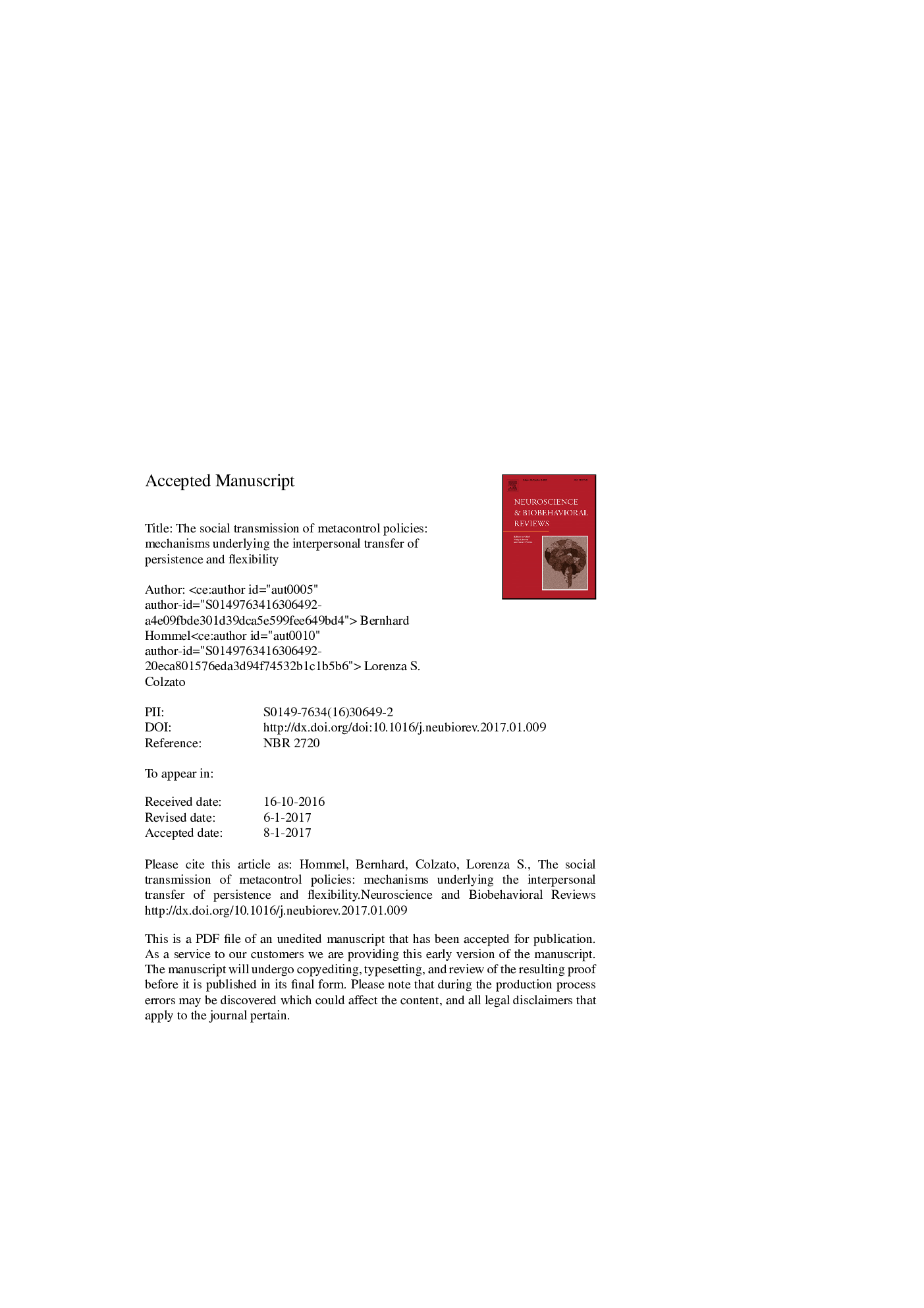| Article ID | Journal | Published Year | Pages | File Type |
|---|---|---|---|---|
| 7302695 | Neuroscience & Biobehavioral Reviews | 2017 | 75 Pages |
Abstract
Humans often face binary cognitive-control dilemmas, with the choice between persistence and flexibility being a crucial one. Tackling these dilemmas requires metacontrol, i.e., the control of the current cognitive-control policy. As predicted from functional, psychometric, neuroscientific, and modeling approaches, interindividual variability in metacontrol biases towards persistence or flexibility could be demonstrated in metacontrol-sensitive tasks. These biases covary systematically with genetic predispositions regarding mesofrontal and nigrostriatal dopaminergic functioning and the individualistic or collectivistic nature of the cultural background. However, there is also evidence for mood- and meditation-induced intraindividual variability (with negative mood and focused-attention meditation being associated with a bias towards persistence, and positive mood and open-monitoring meditation being associated with a bias towards flexibility), suggesting that genetic and cultural factors do not determine metacontrol settings entirely. We suggest a theoretical framework that explains how genetic predisposition and cultural learning can lead to the implementation of metacontrol defaults, which however can be shifted towards persistence or flexibility by situational factors.
Keywords
Related Topics
Life Sciences
Neuroscience
Behavioral Neuroscience
Authors
Bernhard Hommel, Lorenza S. Colzato,
